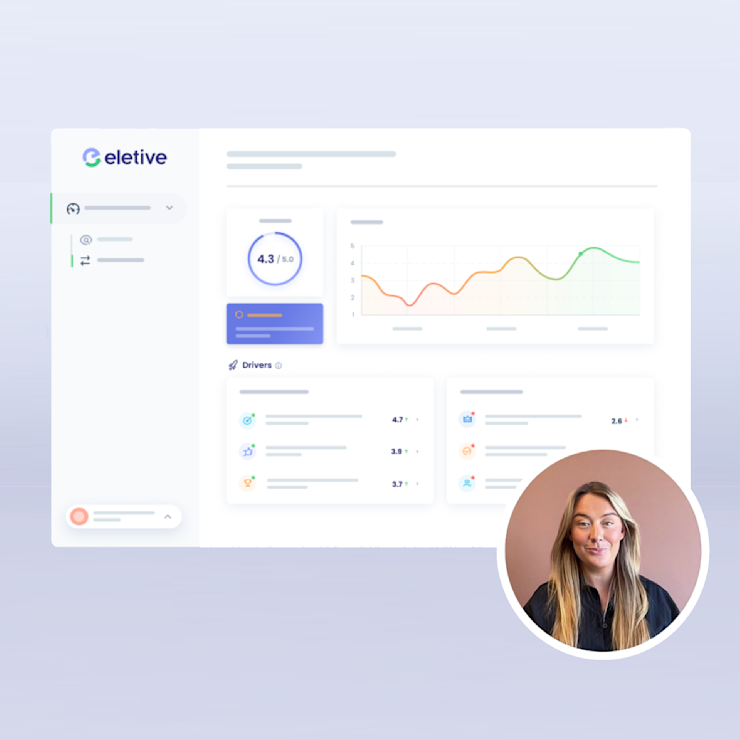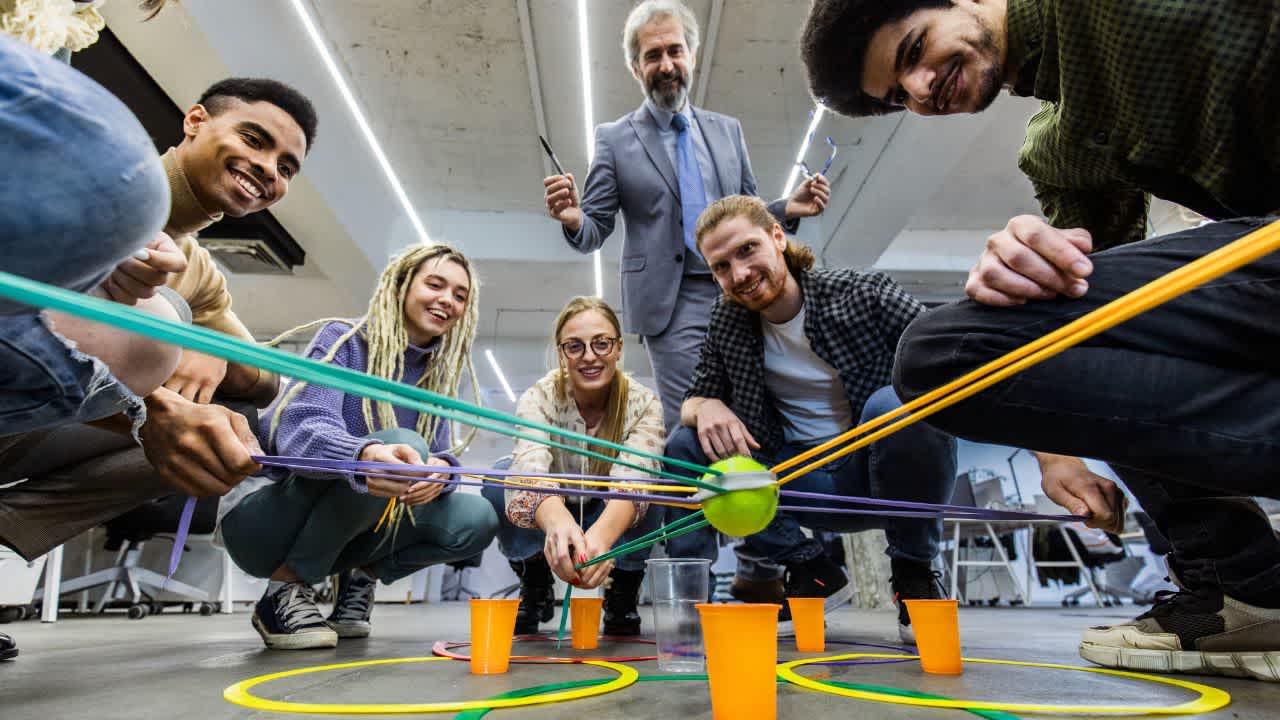Office games can be a great tool for boosting teamwork, improving workplace relationships, and improving the sense of belonging and connection in your organisation. They elevate morale, productivity, and job satisfaction. Dive in and discover the power of team fun!
The success of any organisation relies heavily on cohesive teamwork and strong relationships among its employees. A sense of camaraderie and connection in the workplace not only enhances employee morale but also improves productivity and overall job satisfaction. One effective way to foster these important aspects is through office games.
In this article, we will explore the significance of team building and connection in the workplace and delve into various categories of office games to play that can promote these elements.
Whether you are looking to break the ice with new teams, develop problem-solving skills, relieve stress, or simply have some fun, we have got you covered. Let's dive in and discover the wide range of office games that can bring your team closer together.
Related reading: Remote team-building activities - +32 Ideas for Virtual Teams
Benefits of teambuilding activities in the office
Teambuilding activities have numerous benefits for both individuals and organisations. Firstly, these activities promote effective communication and active listening skills, enabling team members to understand each other's perspectives and work together towards a common goal. By engaging in activities that require collaboration and problem-solving, employees learn to communicate effectively, listen attentively, and value each other's input.

Ice-breaking team-building games for new teams:
Two truths and a lie: Team members take turns sharing two true statements and one false statement about themselves. Others guess which statement is the lie.
Office scavenger hunt: Participants search for hidden items or solve clues around the office in a race against time.
Pictionary: A drawing and guessing game where players sketch images to convey words or phrases to their team members.
Office karaoke: Team members sing their favourite songs during breaks or special occasions, creating a fun and lively atmosphere.
Secret santa gift exchange: Team members exchange anonymous gifts during the holiday season, fostering a sense of surprise and camaraderie.
Mystery lunch: Colleagues draw names and have lunch together, revealing their identities at the end of the meal.
Storytelling circle: Team members share personal or funny stories, encouraging bonding and open communication.
Office bingo: A bingo game with cards containing office-related tasks or events that participants can check off.
Office puzzle hunt: An adventure that requires teamwork and problem-solving skills as teams solve puzzles to reach a final goal.
Office vocabulary bee: Teams compete in a spelling and word-definition bee, testing their language skills.
Problem-solving games for team development:
Escape room challenge: Teams work together to solve puzzles and riddles to "escape" from a themed room.
Team-building workshops: Experts lead workshops and activities to enhance team cohesion and effectiveness.
Role reversal: Colleagues switch roles temporarily to gain appreciation for each other's responsibilities.
Blindfolded trust walk: A trust-building activity where one team member is blindfolded and guided through a course by their teammates.
Office relay race: Teams compete in a relay race with various challenges or tasks to complete.
Office cook-off: Teams prepare dishes using specific ingredients, promoting creativity and teamwork.
Office puzzle day: Employees engage in solving crossword puzzles and word searches during breaks.
Collaborative art project: Team members work together to create a large art project, encouraging creativity and collaboration.
Office science fair: Participants share interesting science experiments or facts with their colleagues.
Office puzzle hunt: An adventure that requires teamwork and problem-solving skills as teams solve puzzles to reach a final goal.
Physical team-building exercises:
Office olympics: Mini-games and challenges set up around the office for teams to compete in.
Desk chair soccer: Chairs are used as "goals" in a friendly soccer game using a softball.
Office volleyball: A game of volleyball set up in the office for some physical team competition.
Office mini golf: Teams compete in a mini golf tournament within the office space.
Office bowling: A makeshift bowling alley is set up for employees to enjoy a game of bowling.
Office tug-of-war: Teams engage in a friendly tug-of-war competition during breaks.
Human knot: Team members form a human knot and must untangle themselves without letting go of each other's hands.
Musical chairs: A quick and entertaining game where participants circle chairs, trying to sit when the music stops.
Duck, duck, goose: A classic children's game that can be adapted for a quick and fun office break.
Creative expression and artistic activities:
Desk decoration contest: Employees decorate their desks creatively, and everyone votes on the best design.
Office lip sync battle: Teams compete in lip sync battles with their favourite songs.
DIY craft day: Supplies are provided for employees to make crafts during breaks.
Office talent show: Team members showcase their hidden talents and skills.
Office DJ day: Employees take turns as the office DJ, playing their favourite tunes.
Office paint night: A night where employees create art together.
Office art gallery: A designated space where employees can display their artwork or photography.
Office T-shirt design contest: Employees design creative office-themed T-shirts, and the best design gets printed.
Educational and knowledge-based team-building activities:
Office trivia: A quiz game with questions related to the company's history and industry.
Team jeopardy: A Jeopardy-style trivia game with teams competing against each other.
Lunchtime TED talks: Employees give short TED-style talks on topics of their choice.
Office book club: Reading and discussing a book together during lunch breaks.
Team-building brain teasers: Sharing brain teasers or riddles for teams to solve.
Office stand-up comedy: Team members try their hand at stand-up comedy during a designated event.
Office vocabulary bee: Teams compete in a spelling and word-definition bee, testing their language skills.
Outdoor and recreational activities:
Office picnic: Team members have a picnic lunch in a nearby park or green space.
Office volleyball tournament: A structured volleyball tournament with teams competing against each other.
Office mini golf tournament: A mini golf tournament with a leaderboard.
Office cookout: Grilling burgers and hot dogs in the office parking lot or outdoor space.
Random fun and social engagement:
Coffee or tea tasting: A tasting session with different types of coffee or tea.
Desk yoga: Quick desk stretches and yoga poses for relaxation.
Office movie night: Screening a movie in a common area and providing popcorn.
Office ice cream social: Enjoying ice cream together during a break.
Office awards ceremony: Recognising outstanding team members with awards.
Weekly team-building challenges: Introducing weekly challenges to encourage team bonding and engagement.
Feedback and improvement for future games
Feedback plays a vital role in improving future office games. Encourage team members to provide their thoughts and suggestions for improvement. Analyse the feedback received and identify areas where modifications or adjustments can be made. Consider rotating the types of games to keep the activities fresh and engaging. By continuously seeking feedback and making necessary improvements, you can maximise the benefits of office games and continuously enhance team building and connection within your organisation.
Sustaining the momentum post-game
To ensure the long-term impact of office games, it's crucial to sustain the momentum and build upon the connections formed during the activities. Encourage ongoing collaboration and communication among team members. Incorporate regular team-building activities into the work routine, such as monthly game nights or team lunches. Celebrate successes and milestones as a team, fostering a sense of camaraderie and motivating employees to continue working together towards shared goals.
In conclusion, office games are a great tool for team building and fostering connections in the workplace. By understanding the importance of team building, categorising office games based on their objectives, implementing them effectively, and evaluating their impact, you can create a harmonious and cohesive work environment.
Invest in building strong relationships among your team members through these engaging and exciting games to help your organisation thrive with increased collaboration, productivity, and overall job satisfaction.
Curious about employee engagement?
Discover how to reduce employee turnover by boosting engagement in our brief, five-minute overview. Watch it below.


























